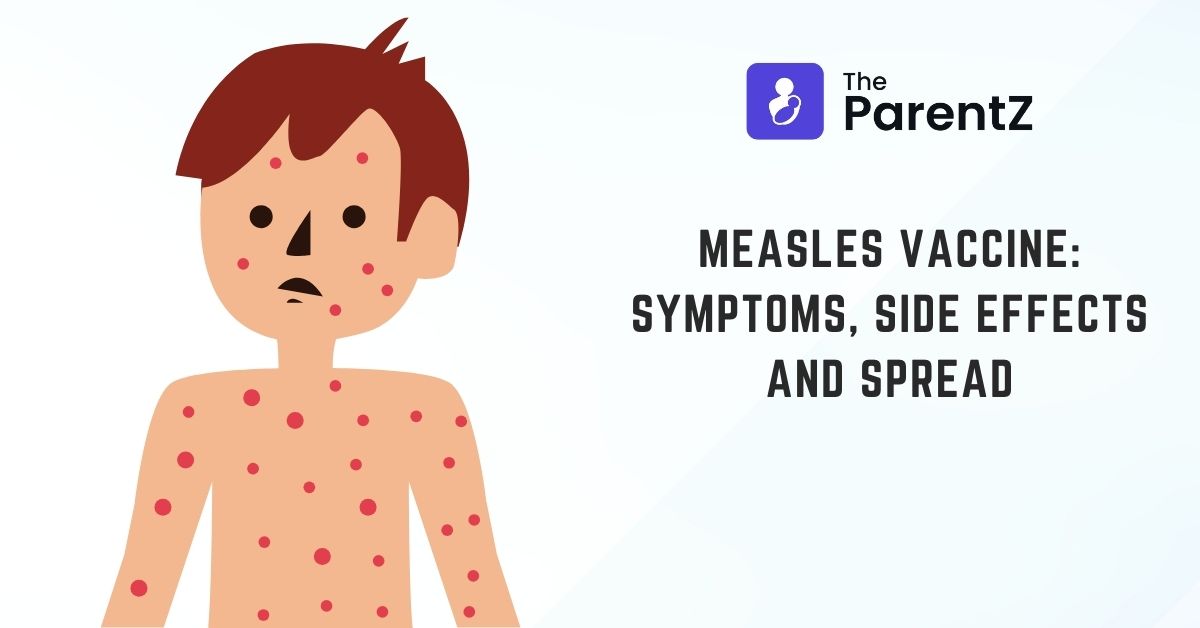When to give the shot?
A measles vaccine is a live attenuated vaccine. It is usually given in the combination form MMR vaccine which is Measles-Mumps-Rubella vaccine. WHO immunisation program recommends introduction of measles vaccine at 9 months of age and this has been followed in India as well. The first dose of vaccine is given between 9-12 months of age followed by a second dose at 16-24 months of age.
Why should the shot be given?
A measles shot should be given to prevent the development of measles infection in the child. Administration of a vaccine shot timely will help the body produce antibodies to fight against the infection if the child is exposed to it in future. It will also lower the severity of the disease in case the child does develop an infection.
What are the side effects?
Side effects are rare for vaccines but they exist nonetheless. Side effects which may develop after giving the measles vaccine to a child are:
- Child may be irritable and not feel well for a few days.
- Local reactions may develop. This includes pain, swelling and redness in the area where the vaccine was injected. This is not a cause for concern and it will resolve spontaneously over the next few days.
- Fever may develop post vaccination. Fever can be treated at home itself with antipyretics such as paracetamol being given. The thing to consider during giving your young child medicine is that the dose should be correct according to the age and weight of the child and overdosage has to be avoided.
- Anaphylaxis or an allergic reaction to the vaccine may occur. It can be recognised early by reddening of skin and generalised itching followed by difficulty breathing. A child who develops anaphylaxis should be brought to the hospital immediately. It can be managed by giving a shot of anti-allergic and anti-inflammatory agents immediately.
- A mild measles may develop post vaccine. It is not a cause for alarm and simply refers to development of low grade fever with rashes in the child. It resolves on its own in 2-3 days.
- In extremely rare cases, seizures may develop in a child post measles vaccination.
What is measles?
Measles is a viral infection of childhood. It is highly infectious and spreads very rapidly. It is caused by a group of Myxovirus. There is a characteristic of rash along with fever and cough in the child which helps us identify measles. In developing countries such as India, it is associated with a high mortality and morbidity as well.
What are symptoms of measles?
Measles has a wide range of symptoms. The symptoms of measles follow a fixed pattern depending on the day of disease. The symptoms in the sequence of appearance are:
- Child develops a fever first.
- Fever is accompanied by sneezing, cough and nasal discharge.
- Redness of eyes is also present.
- A rash appears in the oral cavity of the child opposite to lower morals on the cheek side.
- A dusky reddish rash develops in the body. It starts behind the ears, spreads to the face and then the body.
- Rash fades to a brownish discoloration which remains for months.
- Child remains weak and loses weight.
Is measles serious?
The severity of measles varies greatly. It depends on the immunity of the child and other environmental factors. Even if the child does not develop a severe infection, many complications can be present. The infection may spread to the respiratory tract, the gastrointestinal tract or the brain as well. This is associated with a grave prognosis.
How does measles spread?
Measles spreads via person to person contact. It can spread through droplet infection which means that when a child infected with measles coughs and releases droplets with viral agent in it, your child can inhale those particles and get infected.





Be the first one to comment on this story.